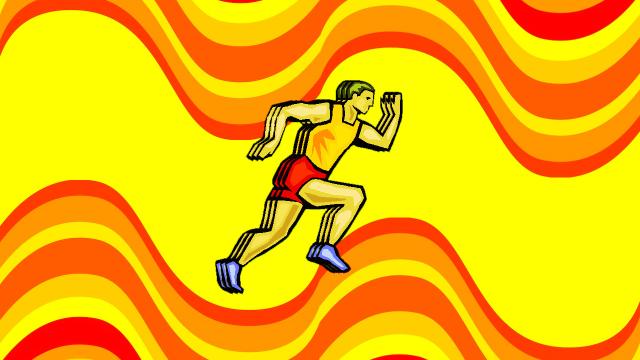Good runners are made, not born. After all, hard work beats talent when talent fails to work hard. If you want to become a better runner, the opportunity is there if you take the right steps.
This post originally appeared on Strength Running.
Too many runners find excuses like “I don’t have time”, “I’m not the type of person who does strength exercises”, or self-limiting beliefs like “Someday I hope to finish my first half marathon”. The limitations we put on ourselves are holding us back from becoming the runner we truly want to be. So, what can we learn from the best about how to become better runners?
Consistency and Progression Over Time
There’s no doubt that successful distance running is a long-term endeavour. Beginners must take the long view and expect to progress gradually. Make running a habit and keep training, year after year.
There’s a tendency to look at successful runners and try to do the exact workouts they do. Or think they’re lucky, gifted, or genetically predisposed to running fast. And of course, talent plays a part in everyone’s ability to compete in any sport. But before any great performance, every runner has undoubtedly endured years of setbacks, gruelling workouts, hard work, injuries, small successes, and stretches of poor performances.
Focus on each individual brick. Not on the crown moulding that will eventually go in the formal dining room. Do you think I ran 2:39 in the marathon off talent? No, it took me over 13 years of consistent training almost every day to accomplish that. And that training got progressively more difficult every year. A gradual, progressive approach that focuses on consistency over time is the only “secret” to successful running. There are no shortcuts.
Focus on the Process
Outcome goals (like a PR or Boston Qualifying marathon) are important. But the process of training should be your primary goal on a day to day basis. Stop asking about a big personal best when you only want to run three days a week — that’s like asking your boss for a raise after showing up late every day and half-assing your work. It’s all about execution: execute your warm-up routine, your workout, and your strength exercises. Then go deeper: execute a good night’s rest and a decent diet.
My college cross country coach used to say don’t burn the candle at both ends. What he means is that you have to live a healthy lifestyle with adequate sleep and a good diet before you can expect to be a good runner. Health comes before performance. The process of training is so important that I value it more than how I feel on a day to day basis. Some runners get anxious when their average distance run pace slows during a training cycle (often during marathon training when the workouts and volume are at their peak).
But what’s most important are the priority workouts: the long run and 1-2 faster workouts per week. Are they being executed at the right pace? If so, then the pace of your base runs isn’t as important. Going slower just means you’re working harder on your priority days and need the extra recovery a slow distance run provides. As long as the process of training is going well, I’m not worried about much else.
To Be a Good Runner, Train Like a Runner
There’s a reason why elite runners train they way they do: it’s the most effective way to get faster. If you have a time goal in a race, then your focus is on performance and you therefore need to train not simply run.
Training is more specific. It requires a more structured approach. If your goal is an upcoming race but you’re tired or injured, are you also trying to fit in cross-training that’s not helping your running? The principle of specificity is at play here. If you’re planting potatoes, don’t expect to harvest carrots. You might get good at CrossFit, but you may not be any closer to your goal of finishing a faster 5k.
Instead, choose aerobic cross-training that’s more specific to running like cycling or aqua jogging. These forms of exercise boost your aerobic fitness while carrying an extremely low risk of injury. As a coach, that’s what I love to see.
Don’t Just be a Runner
After yapping about the need for specificity, you might be scratching your head right now. But don’t be confused — running is still the most important thing in your training plan. But you can’t just run. Training includes a lot more than just easy runs, long runs, and faster workouts.
Are you also doing all these?
Is your training plan structured in such a way that it prioritizes injury prevention? Because if you’re only running, you’re bound to end up injured. And you likely won’t run as fast as you possibly could.
Looking at the training of elite runners, you notice some striking differences between what they do and what most of us do. They’re truly athletes rather than just runners. Of course, most of us don’t have an extra two hours a day to devote to strength work, self-massage, physiotherapy, dynamic stretching, and ice baths. But can we do some of these things, some of the time? I think we can. Burn your excuses and focus on the process of sound training.
7 Things I Wish I Knew When I Started Running [Strength Running]
Jason Fitzgerald is a 2:39 marathoner and USATF-certified running coach at Strength Running. Get his latest coaching advice and free injury prevention course here.

Comments